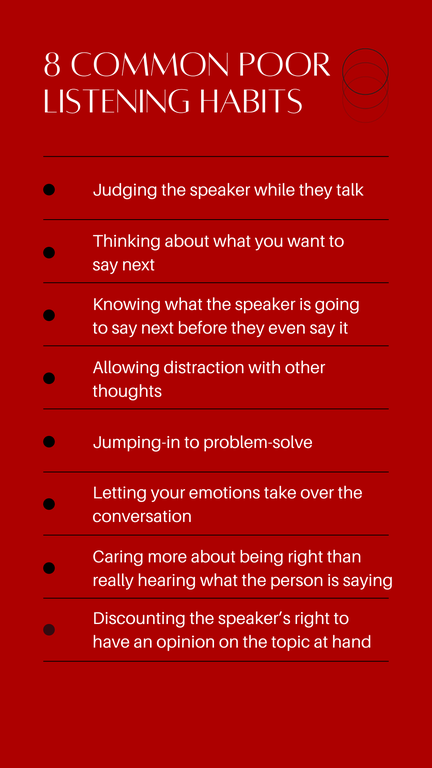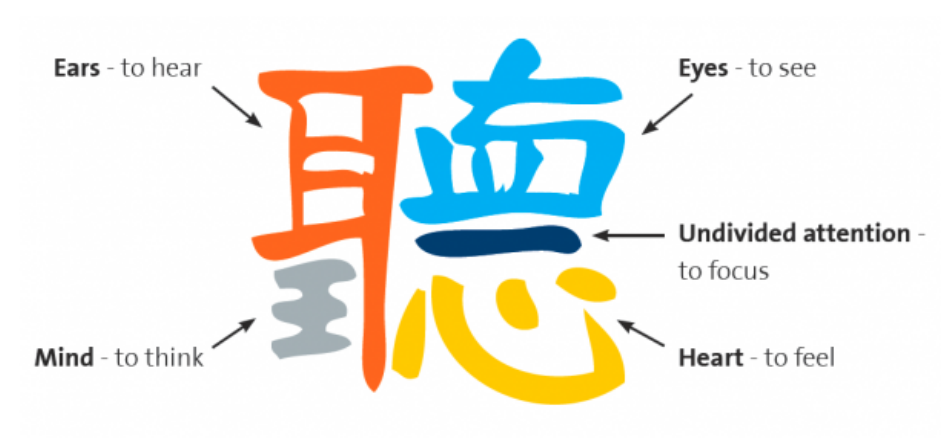Am I Really Listening?
I have listening on my mind this week. First, we are preparing for an upcoming LIAM session, “Difficult Conversations for Productive Outcomes,” where listening is key.Secondly, I have just started an executive coaching training program,and I am reminded that listening skills are critically important to be effective as an executive coach.
Truly listening to someone is the highest form of respect you can pay to another person, yet it is something that weare not likely to have been taught. And,even if taught how to listen, it is not likely practiced on a consistent basis.Listening well is not merely the responsibility of the clergy, counselors, and psychiatrists.Rather, focused and engaged listening are vital skills in all aspects of our lives, at work, and at home.
Yet, how many times a day do you catch yourself in a conversation or a meeting in which your attention to the person talking to you has drifted away? For most of us, this likely happens multiple times a day. For myself, the only time that I get in real trouble with my lovely wife of 41 years is when she catches me not listening to her as attentively as I should.
It is so easy to fall into poor listening habits. Here are eight common poor listening habits that I was reminded of this week in my coach training course:

Focused listeners clear their mind of distractions. This allows the listener to not only hear what is being said, but they are able to pick up the nuances of what is not being said, the tone and pacing of the speaker’s voice, mood, body language, etc. These all provide a richer experience for the listener, bringing greater clarity to what the person is trying to convey.
Focused listening requires us to be fully in the moment with the person in front of us, who may have had to wait days or weeks to speak to us,which demonstrates respect.And for those of us who are clinicians, our patients and their families deserve our full attention as they share their illnesses with us.
As part of my coach training course, we examined the Chinese symbol for listening. As shown in this figure, the symbolhas multiple components that illustrate the various aspects of focused listening:

Here is something that I would encourage you to try the day after you read this post: look at your schedule,select one conversation that you know you will have that day, and plan on being very intentional and deliberate in your listening skills for that interactionby completingthe following steps.
- Clear your mind of distractions just before you meet with the person or patient (focusing on a few deep breaths is a good start, but a minute of mindfulness meditation would be even better)
- Square your shoulders to match theirs to symbolize you are giving them your full attention
- Make eye contact and be mindful of any body language, pacing of speech, tone, etc. that can add to your perception of what is being said
- Focus on what they are saying, not what you will say in response
- Have a mindset of curiosity toward the conversation
- Don't interrupt, but occasionally pause to paraphrase back to them to assure that you are hearing what the speaker intended to share with you
- After the conversation, take a moment to make note of how you think the interaction went for you and the individual you listened to
Just imagine the impact we could have if each of us listened this way in every conversation. It certainly would be a big step forward in our quest to make UofL a great place to work, learn and invest—and it just might make your home life better as well.
References:
https://www.indeed.com/career-advice/career-development/active-listening-skills